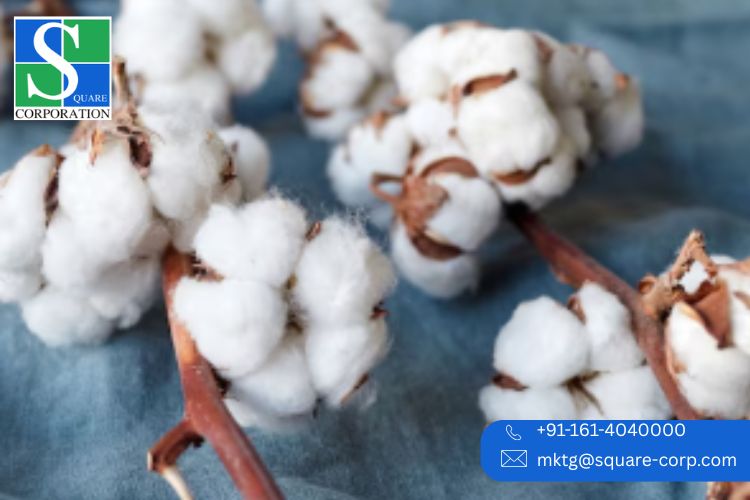India has long been a textile powerhouse, supplying fabrics that meet diverse industrial and fashion demands. From high-volume production hubs to specialized organic lines, top players like Textile Mills in Gujarat demonstrate why global buyers continue to rely on India for consistent, quality fabric solutions.
Why India Remains a Preferred Fabric Manufacturing Hub
India’s textile industry contributes over 2% to the national GDP and provides employment to millions, according to Textiles Committee India. For B2B buyers, the advantages go beyond scale: modern spinning, weaving, and finishing technologies combined with a skilled workforce ensure consistent quality and customizable fabrics for apparel, home textiles, and industrial uses.
Key Types of Fabrics Produced in India
1. Cotton Fabrics
Cotton remains a top choice for apparel and home textiles due to comfort, breathability, and dye affinity. Premium suppliers collaborate with Organic Cotton Manufacturers in India to ensure sustainable and certified sources.
2. Synthetic & Blended Fabrics
Polyester, viscose, and blended fabrics offer durability and elasticity, making them ideal for sportswear, uniforms, and industrial applications. These fabrics often undergo rigorous testing for tensile strength, shrinkage, and colorfastness before B2B shipment.
3. Specialty & Technical Fabrics
- Fire-retardant and anti-static fabrics for industrial use.
- Waterproof and breathable membranes for outerwear manufacturing.
- Recycled and eco-friendly fabrics, often produced in collaboration with a recycled yarn manufacturer.
Selection Criteria for B2B Buyers
Choosing the right fabric supplier involves evaluating quality, reliability, and scalability. Here’s what experienced procurement managers look for:
- Certifications: ISO, OEKO-TEX, and GOTS compliance ensures fabrics meet international standards.
- Customization: Ability to produce specific counts, weaves, finishes, and widths according to client requirements.
- Traceability: From organic cotton sourcing to dyeing processes, transparency reduces supply chain risks.
- Delivery Reliability: Large-volume orders demand on-time shipment and logistics support across regions.
Emerging Trends in Indian Fabric Manufacturing
The Indian textile sector is embracing innovation to cater to evolving global demands. Notable trends include:
- Eco-conscious fabrics: Increasing demand for sustainable products encourages collaboration with Organic Fabric Manufacturers in India.
- Smart textiles: Integration of antibacterial, UV-protective, or moisture-wicking properties.
- Automation: Adoption of AI-driven quality control and advanced looms ensures consistency in large-scale production.
Top Regions for Fabric Production in India
Key hubs include Gujarat, Maharashtra, Tamil Nadu, and Punjab. Gujarat’s industrial clusters, in particular, offer a full ecosystem from spinning to finished fabrics, making them ideal for high-volume B2B sourcing.
Expert Tips for Partnering with Fabric Manufacturers
- Request samples for colorfastness, tensile strength, and shrinkage tests before bulk orders.
- Establish long-term contracts to secure priority production slots.
- Prefer suppliers with R&D teams capable of developing innovative fabrics or custom finishes.
FAQs
Q1: What certifications should I check for when sourcing fabrics?
Look for ISO, OEKO-TEX, and GOTS certifications to ensure safety, quality, and sustainability compliance.
Q2: Are recycled fabrics suitable for industrial applications?
Yes, fabrics produced by a recycled yarn manufacturer can meet industrial strength and performance standards while reducing environmental impact.
Q3: How can I verify a manufacturer’s organic claims?
Check for traceable certifications from recognized bodies, and request documentation showing organic cotton sourcing and manufacturing practices.
Q4: Which regions are best for large-scale fabric sourcing in India?
Gujarat, Tamil Nadu, Maharashtra, and Punjab are top hubs due to their integrated textile ecosystems and mature supply chains.
Also Read: The 5 Most Common Misconceptions Associated with Flax Yarn
Final Thoughts
India’s fabric manufacturers offer a blend of tradition, scale, and innovation, making them ideal partners for global B2B buyers. By prioritizing certified, sustainable, and technologically advanced suppliers, businesses can secure quality fabrics while supporting eco-friendly and responsible sourcing practices.
Blog development Credits:
This blog was conceptualized and developed by Square Corporation, leveraging industry expertise and advanced AI research tools for SEO-optimized content.



